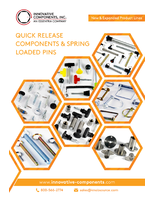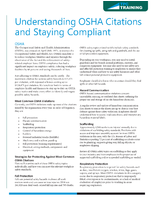E4TC at RWTH Aachen Campus determines potential New Study: Engineering 4.0
The European 4.0 Transformation Center (E4TC) at RWTH Aachen Campus has investigated the strategic digitization of design and control engineering and the technical layout of machines and plant systems. The 38-page research report titled “Engineering 4.0” is based on an eight-month field study of German machine manufacturers (producing both series products and special machinery), of engineering offices/hardware planners, and of component manufacturers. For the first time, the methodology developed to quantify available potential in engineering and measures to be taken enables a well-founded consideration of current engineering workflows for both series production and special-machinery manufacturing. Its central finding: A partial automation of engineering processes achieves an optimal cost/benefit ratio.
Study Engineering 4.0: The new “Engineering 4.0” study – available exclusively from EPLAN – highlights interesting fields of action for efficiency in engineering. The path to higher efficiency in the value chain is mapped out using traditional methods, from standardization through to automation.
The scientists at E4TC in Aachen, Germany, initially introduced a model of the engineering workflow and created an evaluation matrix with five efficiency levels. The “Efficiency Level” matrix contains detailed descriptions of the methodology/workflow and is accompanied by a “Use Level” matrix, which describes and evaluates the use of CAE software as a basic prerequisite for Engineering 4.0. A total of ten process steps characteristic for engineering in machine manufacturing (series/special machinery) were examined. The engineering workflow model generated comprises the typical work steps of the ordering cycle.
Engineering workflow model/Efficiency Matrix
The researchers focused on the work fields of engineering, design, bills of materials, reports, control cabinet layout and devices and templates. The reasons for this are clear: “The dependencies on customers or partners in these process steps are sometimes relatively low or non-existent,” says E4TC Managing Director Dr Thomas Gartzen. “Companies are completely in control in these areas to tap into potential time and cost savings through standardization or automation projects.” The path to higher efficiencies in the value chain is mapped out using traditional methods, going from standardization through to automation. To be able to evaluate the efficiency of each work step, the study scaled the workflow methodology in five stages – where the efficiency level (eLevel) of engineering can be located.
Increasing potential
Using the collected data, the scientists determined that companies can become 20 percent more efficient from eLevel to eLevel. Device-oriented work methods bring about a 25 percent time savings for schematic creation. Users spent half as much time creating schematics with a circuit library for product functions. Introducing partial automation brings an additional 25 percent time savings for creating schematics and creating all reports is completely eliminated by introducing standardization.
The study can be downloaded free of charge at: http://info.eplanusa.com/explore-engineering-4.0
EPLAN Software & Service
EPLAN provides software and service solutions in the fields of electrical, automation and mechatronic engineering. The company develops one of the world’s leading design software solutions for machine and panel builders. EPLAN is also the ideal partner to streamline challenging engineering processes. Both standardized as well as customized interfaces to ERP and PLM/PDM systems ensure data consistency along the whole value chain. Working with EPLAN means boundless communication across all engineering disciplines. No matter whether small or large enterprises: Customers can apply their expertise more efficiently. EPLAN wants to grow further with customers and partners and pushes integration and automation in engineering forward. Worldwide, EPLAN supports over 55,000 customers. Efficient engineering“ is the focus.
EPLAN was founded in 1984 and is part of the owner-operated Friedhelm Loh Group. The Friedhelm Loh Group operates worldwide with 18 production sites and 80 international subsidiaries. The entire group employs 12,000 people and generated revenues of around €2,6 billion in 2018. For the eleventh time in succession, the family business has won the accolade “Top German Employer” in 2019. In addition Friedhelm Loh Group was recognized as “Top vocational trainer” according to a study of Deutschland Test and Focus Money.
EPLAN Software & Services LLC
425 N. Martingale Rd., Suite 470
Schaumburg, IL 60173
USA
Debbie Raymundo
Phone: +1-847-744-5729
Fax: +1-847-240-4667
raymundo.d@eplanusa.com




